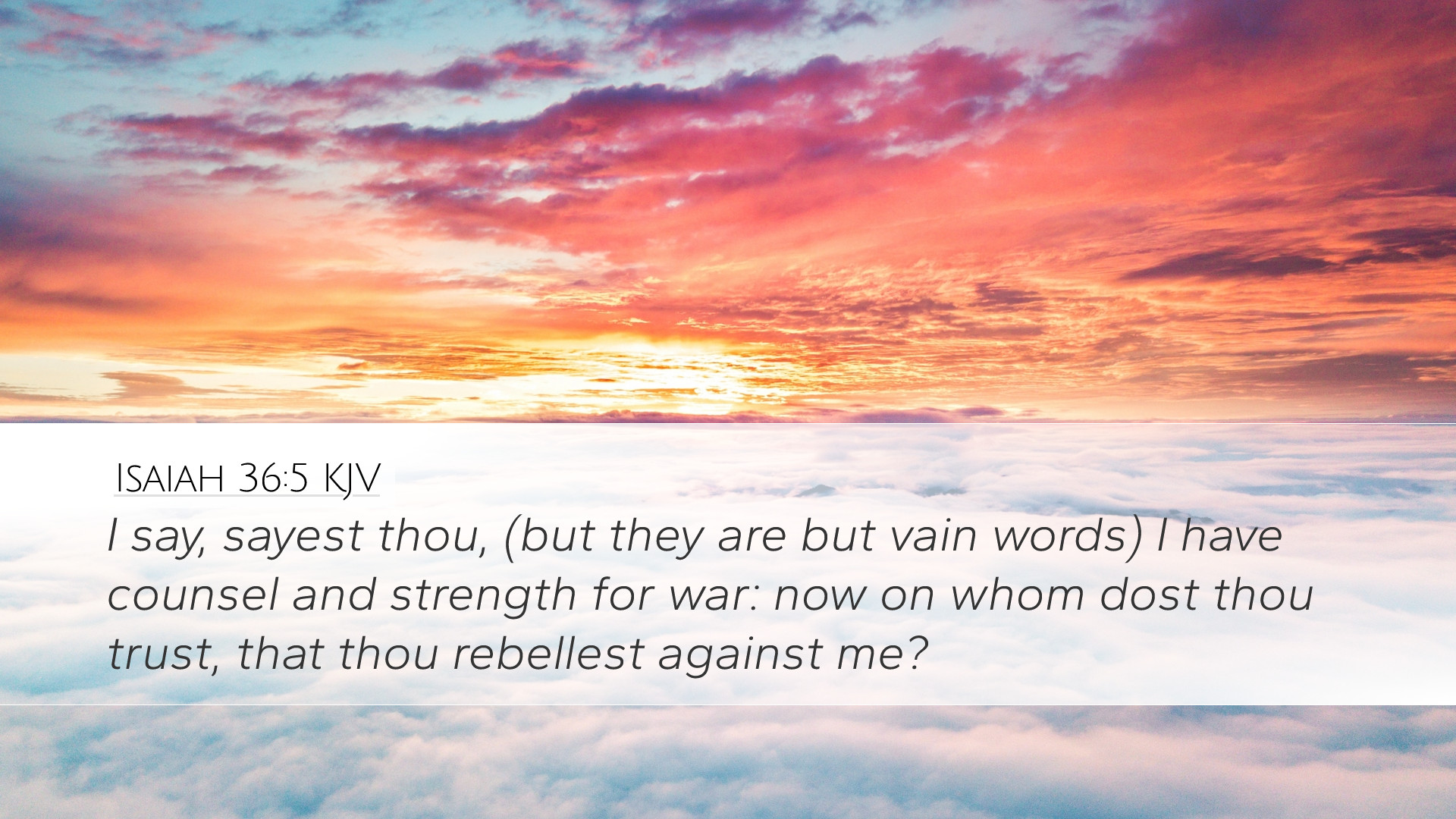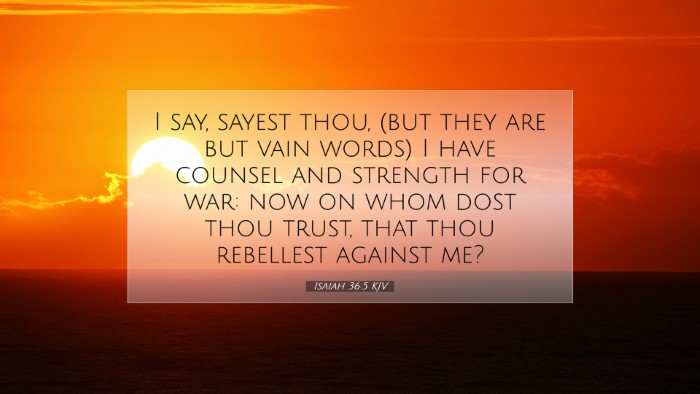Commentary on Isaiah 36:5
Verse: "Sayest thou, but they are but vain words: I have counsel and strength for the war. Now on whom dost thou trust, that thou rebellest against me?" (Isaiah 36:5)
Introduction
This passage arises within the context of the Assyrian invasion of Judah, where Rabshakeh, the Assyrian envoy, taunts the people of Jerusalem, challenging their faith and trust in God. The commentary on this verse explores the depths of human reliance, the nature of true strength, and the folly of placing trust in temporal powers.
Trust and Vain Words
Matthew Henry elucidates the idea that Rabshakeh perceives the words of Hezekiah (the king of Judah) and his advisors as mere "vain words." He emphasizes the futility of human reliance on empty assurances when facing formidable adversaries. The term "vain" highlights the futility of words when detached from faith and divine backing.
Albert Barnes notes that the mocking of Rabshakeh signifies the common discord that arises when faith encounters threatening trials. Rabshakeh questions the legitimacy of Judah's hope, suggesting that their declaration of trust in God holds no real substance against the might of Assyria.
Counsel and Strength for War
This assertion from Rabshakeh points to a dangerous reliance on human wisdom and military prowess. Adam Clarke offers a perspective that emphasizes the misleading confidence in strategic counsel. It serves as a reminder for scholars and theologians about the contrast between God-given counsel and mere human strategy.
- Human Wisdom: Clarke warns that relying solely on human intellect can lead to devastating consequences. History validates this, showcasing nations that fell due to misplaced trust.
- Spiritual Warfare: The commentary brings attention to the concept of spiritual warfare, where true strength lies not in arms but in faith and reliance on God, reminiscent of Ephesians 6.
Rebellion Against Divine Authority
Rabshakeh's question about whom they trust reveals a deeper inquiry into the nature of rebellion. This passage invites theological reflection on the idea of rebellion itself—specifically, how it arises in the hearts of those who fail to trust in God amidst adversity.
- Nature of Rebellion: Matthew Henry highlights that rebellion against God stems from a lack of understanding true power and authority. Failing to see God's sovereignty leads to misplaced confidence in human reigns.
- Theological Implications: Barnes comments on how this question serves to expose the underlying doubts within Judah, raising crucial discussions about faith amidst trials.
Encouragement to Trust in God
While the taunts of Rabshakeh serve as a serious challenge, they also offer an opportunity for faith reinforcement. The faithful response of Hezekiah, laid out in subsequent verses, provides key insights into the importance of prayer and divine reliance.
- The Power of Prayer: Clarke notes Hezekiah’s immediate response—his act of prayer—displays the recovery of faith. This establishes prayer as an act of defiance against fear and an assertion of trust in God's ultimate power.
- Divine Assurance: The backdrop of this confrontation underscores God's faithfulness to His people, regardless of their situation.
Concluding Thoughts
Isaiah 36:5 contains deep theological implications and practical applications for today. It serves as a call to reject empty words and transient hopes, urging believers to ground their faith in the eternal God. The commentaries of Henry, Barnes, and Clarke collectively remind us that the essence of trust is rooted in acknowledging God’s sovereignty and empowering presence during trials.
The exploration of human counsel versus divine strength in this passage continues to resonate, serving as a timeless reminder that true strength in any spiritual warfare comes from a heartfelt dependence on God alone.


